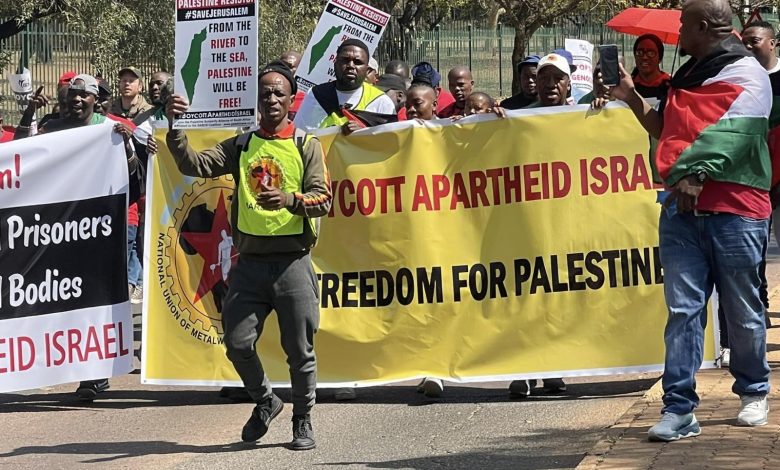Positions of the African Countries Towards Gaza War

Sudan Events – Sumaya Sayed
Israel has made deep inroads into a continent traditionally sympathetic to Palestine. But Israel’s gains have limits too. As reports of Hamas fighters attacking on 7 October, southern Israel flooded phones and television sets around the world, Kenyan President William Ruto took to X, the social media platform formerly known as Twitter.
Kenya joins the rest of the world in solidarity with the State of Israel and unequivocally condemns terrorism and attacks on innocent civilians in the country, considering that ‘there exists no justification whatsoever for terrorism, which constitutes a serious threat to international peace and security.”
It was an explicit endorsement of Israel’s position and – some would argue – the response that Prime Minister Benjamin Netanyahu’s government has since unleashed on the Gaza Strip, with a bombing campaign that has killed more than 1,900 people.
As the death toll from the war mounts, African governments are wading into heated debates surrounding the conflict – with the continent split, as different nations take opposing sides.
Authorities in South Africa blamed the escalation on Israel’s illegal occupation and desecration of the Al-Aqsa Mosque, as well as sacred Christian sites.
Algeria declared “full solidarity with Palestine” early in the war. The African Union Commission under Moussa Mahamat Faki, while expressing concern over the violence, has blamed the “denial of the fundamental rights of the Palestinians” and called for a two-state solution.
But Kenya, Zambia, Ghana and the Democratic Republic of the Congo are among other African nations that have aligned with Israel’s position. Some of them changed positions after heightened atrocities of Israel against Gazan.
So why is a continent that suffered the worst ravages of colonialism and racism for centuries and that has historically, for the most part, supported Palestine, split now?
The short answer: Africa’s divisions highlight each government’s attempt to compartmentalise their interests, experts say, and underline some countries’ strengthening ties with Israel. On the one hand, there are deep-rooted ties with the Palestinian movement; on the other, the offer of cutting-edge technology, military assistance and aid from Israel. Which wins out could determine how Africa tilts if this conflict drags on – and in the future.
African countries shedding the pain of brutal colonial rule in the 1960s were cold to a newly formed Israel and were sympathetic to the struggle of Palestinians uprooted from their land and homes in 1948.
Following the October War of 1973, the continental bloc, then the Organisation of African Unity (OAU) severed ties with Israel.
Zine Labidine Ghebouli, a researcher with the European Council on Foreign Relations (ECFR) traces some of Algeria’s sentiments to the 1988 Palestinian Declaration of Independence in Algiers and even further back to Algeria’s history under French colonialism.
“The Algeria-Palestine relationship is very historic and emotional,” Ghebouli told Al Jazeera, adding that Islam as a common religion solidifies those ties. “We were occupied by France, and this history of brutality is similar.
But post-apartheid South Africa has perhaps been Palestine’s most staunch supporter on the continent, with Nelson Mandela famously drawing parallels between the struggle of Black South Africans against white rule and of Palestinians against Israel’s occupation. Many human rights groups have subsequently also made that comparison.
In July 2022, South African Foreign Minister Naledi Pandor called on the United Nations to declare Israel an “apartheid state”. Amid Russia’s war on Ukraine, as Western pressure grew on South Africa and other nations in Africa and Asia to condemn Moscow’s actions, Pandor pushed back, asking why Western capitals weren’t willing to apply the same principles of international law when it came to Israel’s occupation of Palestinian lands.
Lately, several African countries recalled their ambassadors from Israel: South Africa and Chad, the first to do so.



